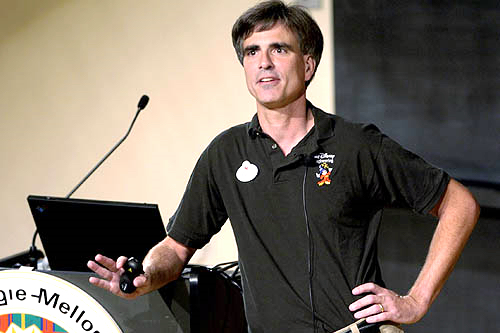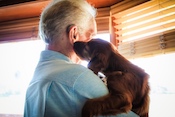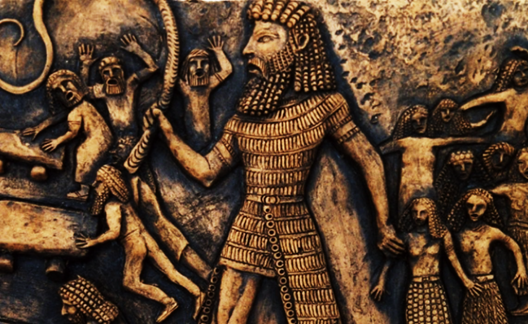Of Replicating Our Parents
Dr. Rick is waging his war against parentamorphisis. This metamorphosis occurs when children become like their parents. While it isn’t yet accepted as a part of the Diagnostic and Statistical Manual of Mental Disorders, 5th Edition (DSM-5), Dr. Rick believes that it will be given a number and the criteria to determine whether someone is suffering from that mental disorder.

Dr. Rick and his book about un-becoming your parents
The following is a video in which Dr. Rick explains his professional calling to assist children from morphing into their parents.
While the American Psychiatric Association (APA) ponders whether to add parentamorphisis as a psych disorder, I understand his position. However, I also have a contrarian position on Dr. Rick’s mindset at another level. Allow me to attempt to frame up my personal observation.
As I look back upon my early life, I see my life bifurcated. The early part was a type of Camelot-esque life while going up in Merchantville and Pennsauken, NJ. Things were happy and easygoing. My family was healthy and happy. Life was good.
Nonetheless, the worm started to turn when we moved to Mt. Lebanon. Mt. Lebanon was personally traumatic for me educationally and financially. I learned that I was both dumb and poor.
Additionally, my mother began a dance with death, which started with a radical mastectomy. Then she had to deal with crippling arthritis. Finally, she wound up with lupus and died in her early 50s. I was aware of her medical dances with death. However, that was just the way things were for her from my perspective as a young boy.
I never processed my parents’ relationship. That, too, was just the way things were. My dad loved my mother, and she loved him. I didn’t really grasp their relationship beyond that generic observation for those couple of decades before her death.
Half a century has lapsed, and I find myself becoming my father in my twilight years. The last five years have been spent with Ginger. She is my third Irish Setter and the second one that was named Ginger. Interestingly, my relationship with Ginger parallels that of my father’s relationship with my mother. Ginger began her life filled with excitement and energy…boundless energy. That period paralleled my early family life.
However, the first half of her life changed radically when she was diagnosed with inflammatory bowel disease (IBD). She has been down to Purdue Veterinary Hospital four times in the past two years, and two of the visits were in the last couple of months.
The parallels are striking. My mother and Ginger often went to their doctors several times in the same month plus hospital stays. Another similarity was the haunting question of whether the end was near for either of them as they dance with death. That looming question resonates in my psyche all the time now with Ginger.
I have done the dance with death two twice, and Ginger also has. What fascinates me is that the fear of death brought my parents closer together. That closeness of my parents has replicated with Ginger and me. Dancing with death teaches the dancers that their clocks are ticking. This is a photo of Ginger and me proofing an article that I am writing.

None of us know when our time here will run out, and our clocks stop ticking. What we do know is only this moment in time. We need to enjoy the moments that we do have. I wasn’t privy to the last moments that my parents had together, but they shared their love for each other regardless of all of my mother’s medical issues.
I don’t know when Ginger and my last moments will be. Nonetheless, we know how we care for each other. In the first half of Ginger’s life, we really did have fun. However, she wasn’t into licking. However, things have changed. It fascinates me how she expresses her love for me. On days that have been hard for her because of IBD, I have spent hours caring for her.
Before we go to sleep at night, I’ll always talk to her and kiss her goodnight. That is done every night. However, when Ginger has spent that day suffering, she will listen to me talk to her and kiss her. When I am about to turn off the lick, she will lick my hand. The amount of time that Ginger licks my hand indicates how trying that day was for her medically. Often, she will lick my hand for ten minutes or more. It is a haunting experience; I have become my father.
Ginger’s response to my caring for her reminds me of Gilgamesh, who was the ruler of Uruk in Sumer ca. 2800-2500 BCE. Over the centuries, The Epic of Gilgamesh emerged, which was about Gilgamesh’s desire to find immortality and fearing death. After he realized that his quest was impossible, he said, “Forget death and seek life.”
Follow @mountain_and_me

















